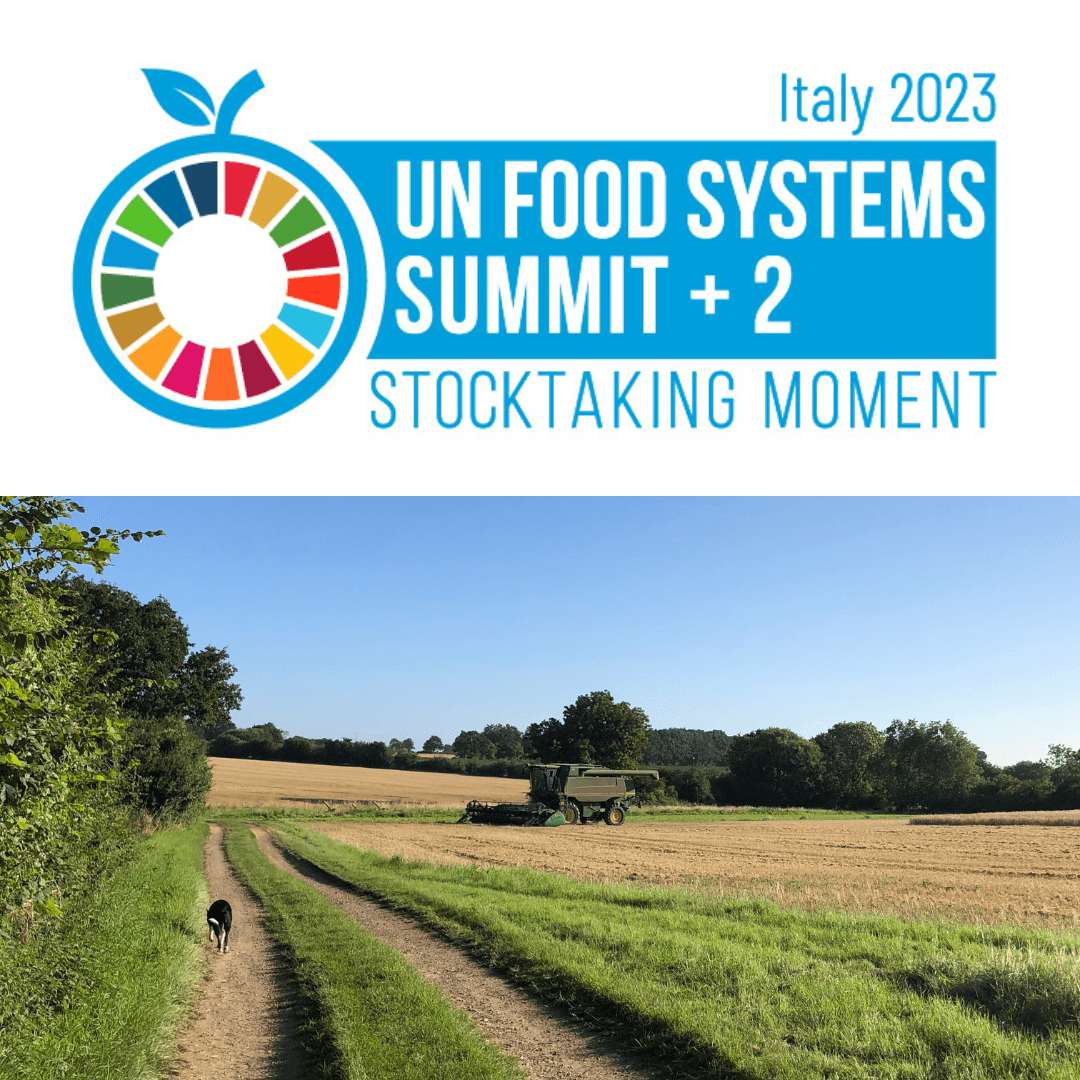Hear how we could look closer at the bigger picture when it comes to our global food system and how we make connections between farming, food and health:
Recently I heard the phrase, ‘You’ve got to look closer at the bigger picture’, so during this year’s frustrating harvest, this has made me look further than just out the window to see if the combine harvester is going, or not.
So when I heard that the UN Food Systems Summit was held in Rome recently, I was intrigued to dig a little deeper into the biggest picture of all, our global food system. This was attended by ministers, world leaders, scientists, academics, NGOs and some of farming’s most powerful corporations, and reported by Radio 4’s The Food Programme. The main objective was to discuss if we can transform how we grow, produce, process, distribute and consume food. This is because there is more food waste, food affordability issues and more people who are obese.
Are we making significant progress towards the UN Sustainable Development Goals for 2030, which include responsible consumption and production? The UN claims that in order to reach these interlinked goals, we need to fix the food system. The word ‘system’ is an accurate one for a complex interwoven web between all the influences that play a role in food and farming.
The report mentioned that we possibly have not been looking at the problems through the right lens because the connections have not been made before between agriculture and public health, consumption and climate.
The three-day event covered the School Meals Coalition which involves 60 countries which provide 480 million daily free school meals worldwide. In Brazil, their free school meal programme is the longest-running public policy with the budget this year increasing to 1.1 billion dollars and 30% of this budget must be on food sourced from family farms. Brazil sees this as an investment in both the next generation’s health and their regional food producers. Is there something that other countries could learn from this?
When I studied behaviour change at university, I mainly concentrated on how to improve people’s dietary choices and physical activity, to increase their physical health and well-being. The COM-B model was often used to change Behaviour as it identifies three factors that need to be present for any behaviour to occur: Capability, Opportunity and Motivation. These factors interact over time so that behaviour can be seen as part of a dynamic system.
Coming from a farming family, I have always been interested in the role food plays. It is a way of connecting with others, as well as the land, and for me, is the bridge between farming and public health. So moving away from the summit, I also recently listened to another episode on The Food Programme on Agritourism. This included the parallels between this thriving sector in Italy, with the growing sector here in the UK. Visitors can enjoy meals using locally sourced produce, stay on farms in accommodation and learn about farming through farm tours. For me, this is a recipe to facilitate all the factors of the COM-B model to change behaviour relating to one’s health and our environment.
With the recent announcement that has extended temporary campsites for farmers from 28 to 60 days, this could have many benefits and allow us all to see the bigger picture in different ways, no matter how close or far away you are.
Author:
Georgie Knock is a freelance marketing consultant specialising in food and farming. A partner at our family-run farm in Suffolk, which diversified into holiday lodges at Welhams Meadow.

